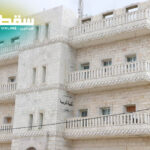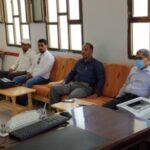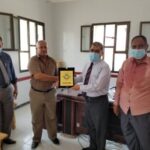Faculty Overview
The Education Faculty in Archipelago, Socotra is one of Hadhramout University’s faculties. It was established in 2000 with a two-year diploma program and at that time included two departments: Islamic studies and Arabic language. In 2006, the faculty turned into a bachelor’s course in which the student studies eight classes in four years, and in 2008 the English language department was established and in 2013, the Department of Social Sciences was established. The faculty continued to prepare and rehabilitate teachers and supplemented education on the island, as it worked to cover the existing deficit in elementary and secondary schools, and a number of male and female teachers graduated from it. The faculty currently includes four scientific departments:
- Islamic Studies Department: The student studies four years and obtains a bachelor’s degree.
- Arabic Language Department: The student studies four years and obtains a bachelor’s degree.
- English Language Department: The student studies four years and obtains a bachelor’s degree.
- Social Studies Teacher Department: The student studies four years and obtains a bachelor’s degree
A group of staff members and their assistants work in the faculty, their ranks are varied between associate professor, assistant professor, teacher and teaching assistant.
It currently includes about (260) male and female students distributed over the four scientific departments. The faculty seeks to open new scientific departments to meet the island’s need for cadres.
Vision
Mission
Objectives
- Preparing educational cadres scientifically specialized in the field of teaching to advance the educational process in Socotra.
- Raising the level of academic quality for staff members and their assistants, students.
- Contribute to community service by conducting studies and research in the education field.
- Expanding the opening of new scientific departments to meet the needs of the island.





